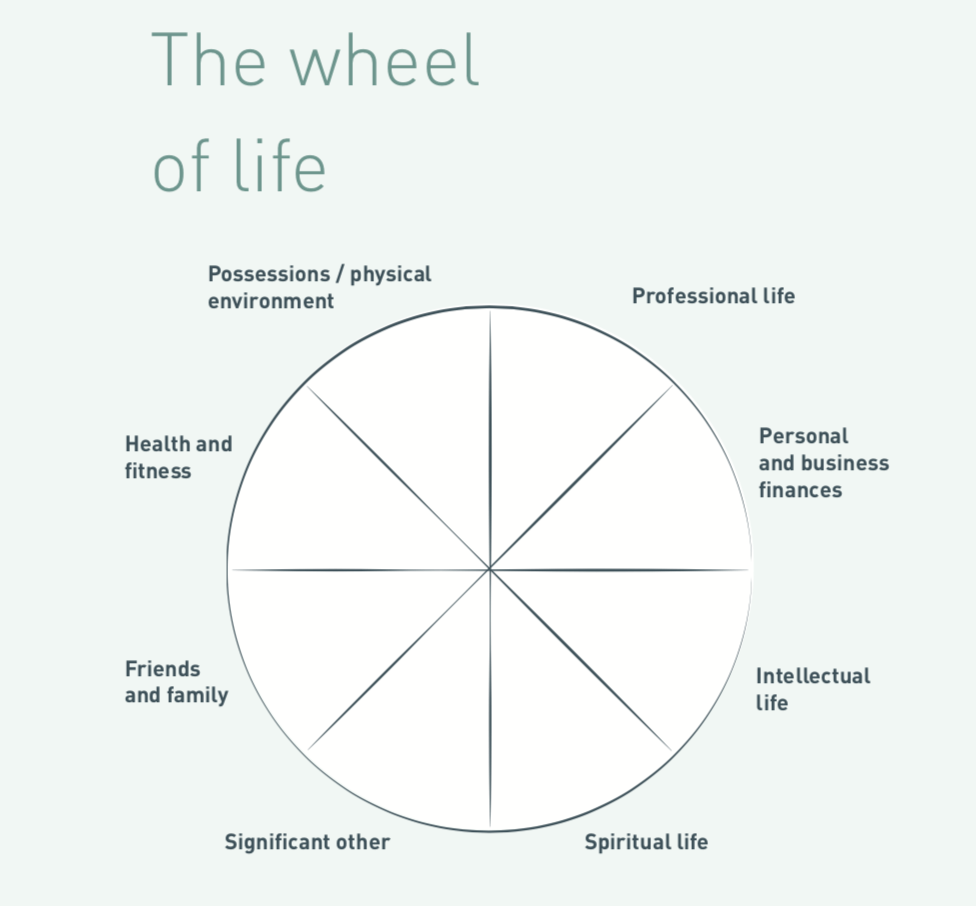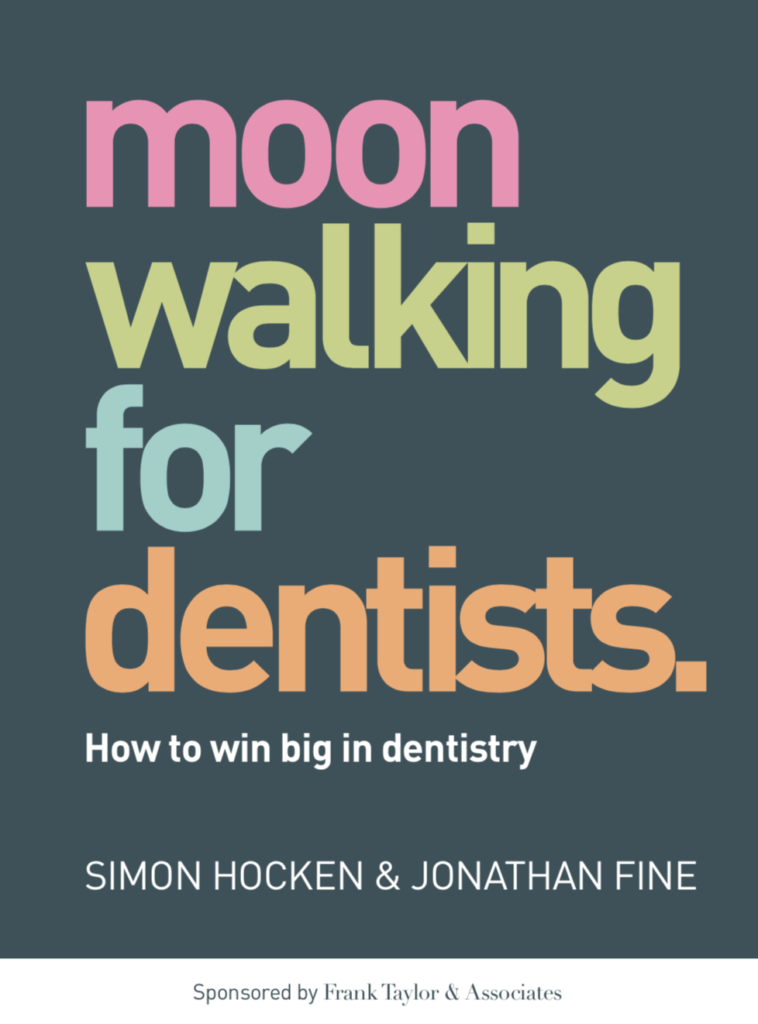I’ve been flicking through a book I published with Simon Hocken in 2014 called Moonwalking For Dentists: How to win big in dentistry. I was expecting to wince but actually it’s aged pretty well, although it’s a bit wordy.
We were bang on the money with the “16 agents of change” affecting dentistry and our formula for success and happiness remains the most thoughtful articulation of its kind I’ve seen in this sector.
Chapter two is called “What do you really want?” It helps you audit your life and understand yourself better. These are powerful and simple exercises — they only take a few minutes and get you straight to the questions you routinely avoid. Here are three for you to try — the following is an adapted excerpt from the book.
- The wheel of life
 Sketch this on some paper. Score your satisfaction on each spoke on a scale of 0 (low) to 10 (high) with 0 at the centre and 10 at the edge. Join up the marks – does your life wheel look and feel balanced? The more spikey the wheel the more unbalanced your life is.
Sketch this on some paper. Score your satisfaction on each spoke on a scale of 0 (low) to 10 (high) with 0 at the centre and 10 at the edge. Join up the marks – does your life wheel look and feel balanced? The more spikey the wheel the more unbalanced your life is.
There are almost certainly areas that are not getting as much attention as you’d like. However, there may also be areas where you’re putting in more effort than you’d ideally like. These areas are sapping energy and enthusiasm that may be better directed elsewhere.
- Identify your core values
Values give meaning to our lives and are often expressed in abstract terms such as: family, order, creativity, communication, connection. Living a life that’s consistent with our values means living a happy, fulfilled life. Having them challenged makes any day more difficult.
Here’s two ways to help you determine your core values. You should expect to find between six and nine values that are truly important to you.
- Describe a time when you got angry, irrationally angry.
- Describe the circumstances, the narrative. Really remember it well.
- Describe the behaviour of the person who your anger was directed at.
- What would you call the opposite of their behaviour?
- This is the value.
Alternatively:
Describe a time in your life, probably a half a day or day which, when you look back on it, represents a perfect time. This is called a ‘peak experience’. Examples might include:
- your wedding day
- graduation day
- winning a competition
- a sporting achievement
- a time on holiday
- an experience with your family
When you look back on it you feel a warm glow. Describe the day in detail, who was there, how did you feel, why was it special? The reason you have such a fond memory of this peak experience is that you were getting several of your core values met on this day. If you tease them out of this memory, you will find two or more core values.

- Imagine your own funeral
Imagine you are listening to the eulogies your family and friends are giving about you. What are they saying about:
- what you achieved?
- whose lives you influenced?
- your character?
- your success?
- your legacy?
What stands out as meaningful to you? Is it conforming to conventional values of success around material wealth and status? Or is it aligned with other values? Does the way you’re living today serve these values?
If you’d like to read chapter two in full drop us a line and we’ll send you a pdf free of charge. We also have a limited number of books left. Email [email protected] quoting FINE WORDS for 25% off the £25 listed price.
 JJF
JJF
07860 672727

